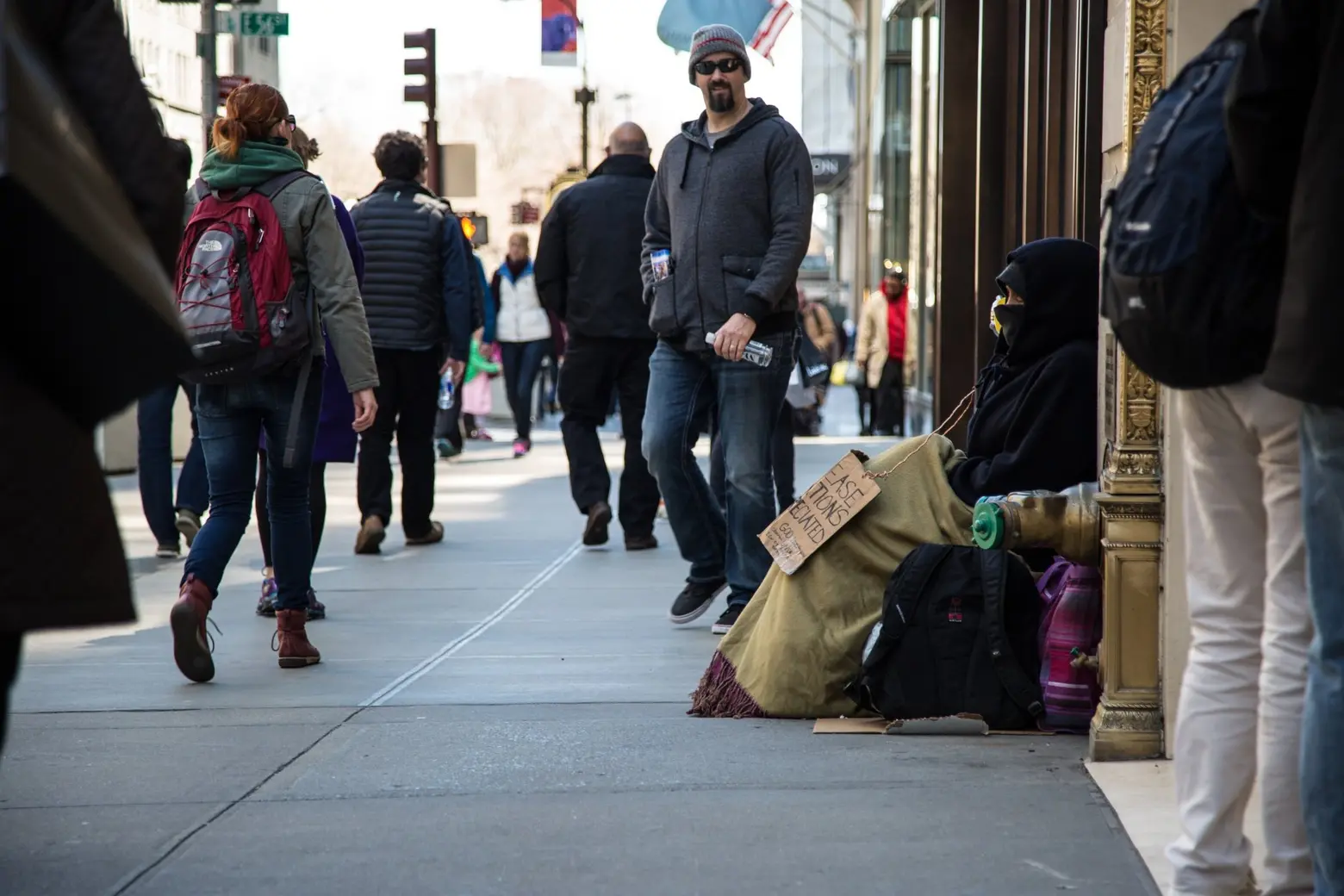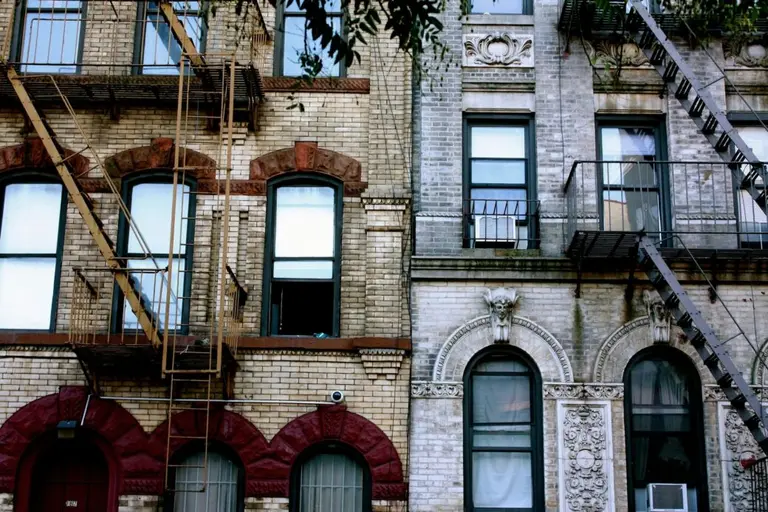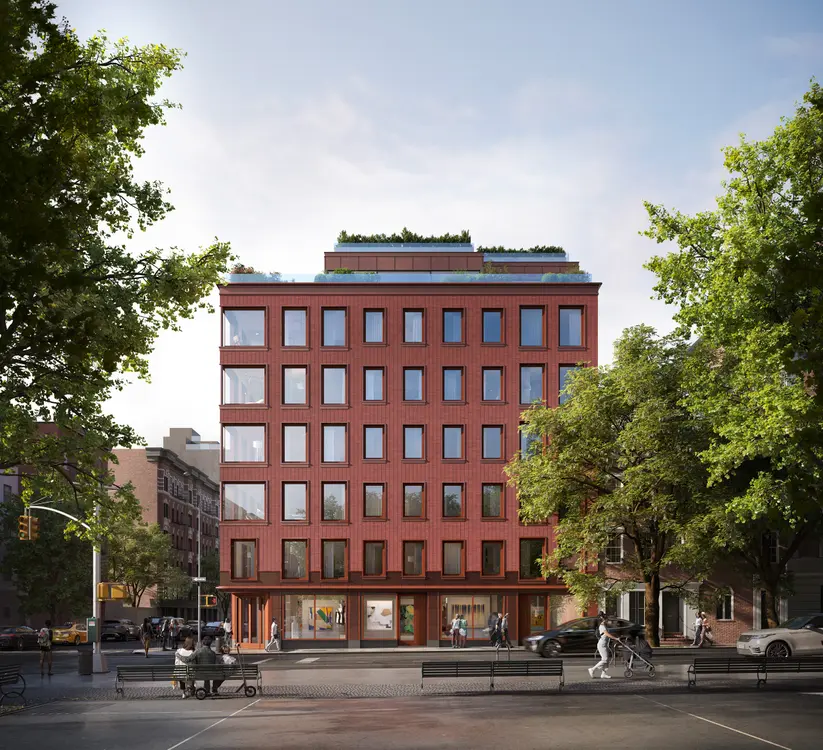Mayor de Blasio to unveil plan to open 90 new homeless shelters amid growing community opposition

The exact details of the mayor’s proposal, to be announced Tuesday afternoon, are not yet known, but the focus will undoubtedly be the mayor’s ongoing battle to significantly beef up the city’s overwhelmed shelter system, according to the New York Times. New York–along with Los Angeles, San Francisco and Washington, D.C,– has experienced an increase in homelessness in recent years, though the number of homeless people has declined nationwide. The city’s shelter infrastructure is over capacity to the point that, as 6sqft previously reported, around $400,000 a day is being spent on using hotel rooms as temporary shelters. Homelessness is one of the mayor’s thorniest problems; the proposal will reportedly increase the number of shelters throughout the city by nearly one third.
The Times calls homelessness the mayor’s “most vexing citywide problem” as re-election time draws near and his attempts to curtail the visibly growing number of people sleeping and begging on city streets–a daily shelter census puts the number at around 60,000 people–have fallen short. New York is legally obligated to provide temporary shelter to anyone who enters an intake facility and asks for it. The added shelters would allow thousands of people to be moved from hotels and cluster housing to more stable shelters and eventually to permanent housing.
The mayor put the opening of new shelters on hold in 2015 due to community opposition, which resulted in the current growing dependency on hotels to fill the need for stopgap measures. Later that year, he put Steven Banks, former head of the Legal Aid Society, in charge of managing the restructuring of homeless services as part of a multipronged attack on homelessness that included offering more affordable housing, rental subsidy programs for low-income residents in dire straits and legal assistance to tenants threatened with eviction.
A recently-released report on a legislative package that would revamp the city’s Fair Share law in order to bring more equality to the way public facilities are distributed throughout the city found that homeless shelters, mental health and drug treatment centers and foster care homes were concentrated in 10 community districts–there were 21.7 beds per 1,000 residents in those districts–at five times the city average. The proposed legislative package–not part of the mayor’s plan to build more shelters–would change that concentration by restricting such clustering.
The Coalition for the Homeless is opposed to the legislation on the grounds that the overhaul might stall the opening of shelters make the problem worse for homeless families with children and students with long commutes. Giselle Routhier, coalition policy director said, “It would inhibit the city from locating shelters in neighborhoods where families may need more support.”
The mayor will need the cooperation of both community members and nonprofit organizations for the latest effort to succeed; shelter openings have already been hampered in places like Maspeth, Queens, where residents were able to pressure one hotel owner to walk away from a deal with the city to use the establishment as a homeless shelter.
Nonprofits are reluctant to line up behind the mayor’s latest efforts due to outdated contracts that have left them unpaid for past services. Those same providers will be asked to run new stand-alone shelters amid waning patience at what they see as de Blasio’s failure to manage existing contracts and payments. Providers have been dependent on bridge loans instead of payment as they wait for the contracts to be sorted out.
Scott Stringer, the city comptroller, said in a statement, “The city’s lack of organization and failure to plan often means those on the front lines face financial stress and uncertainty. Ultimately, that makes this extraordinary challenge harder to fix.” Mr. Banks replied that the city had worked “as fast as we can” to address the backlog in payments. He also said some payments were delayed because nonprofits hadn’t made necessary improvements at their shelters.
The city’s inability to see progress on the homelessness front comes at a time when advocates are expecting funding changes under the Trump administration that may make things even worse with budget cuts could hurt affordable housing and rental assistance programs, resulting in tens of thousands more New Yorkers finding themselves on the homeless rolls.
Hotels and cluster housing are problematic even as a temporary solution due to sub-par conditions and the fact that they are unable to provide people with necessary facilities or services that could help them move into permanent housing in addition to drawing ire from the community. “I’m very dissatisfied when it comes to a lot of strategies we put into place to address homelessness that still haven’t gotten us where we want to go,” the mayor said in December. “My job is to get it right.”
[Via NYT]
RELATED:
- Homeless spending in NYC doubles over three years, likely to hit $2.3B
- City may continue to house homeless New Yorkers in hotel rooms for nine years
- City spending an average of $400,000 a night on hotel rooms for the homeless
- City will increase the number of hotel rooms housing homeless New Yorkers by more than 500


























